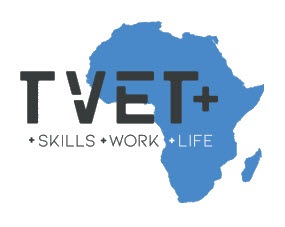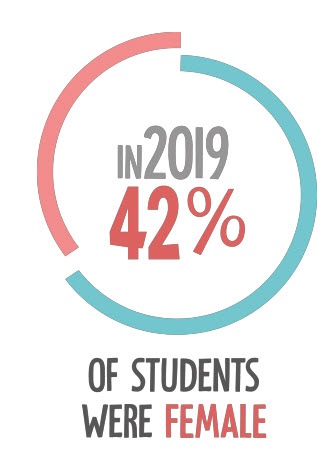The TVET+ Programme
 In order to achieve stable growth and employment creation, it is necessary to build a workforce with sound skills and thereby lift the companies to a higher technical level. Out of this necessity grew Professor Adow TVET center (Prof Adow) in 2013. Prof Adow is becoming pilot in the newly established TVET+ programme that will establish educational centers and business hubs in several locations in Somalia. The programme is mainly funded by the german development bank KFW and Yme foundation is responsible for project implementation. Stretching over at least 5 years, TVET+ has become our main activity.
In order to achieve stable growth and employment creation, it is necessary to build a workforce with sound skills and thereby lift the companies to a higher technical level. Out of this necessity grew Professor Adow TVET center (Prof Adow) in 2013. Prof Adow is becoming pilot in the newly established TVET+ programme that will establish educational centers and business hubs in several locations in Somalia. The programme is mainly funded by the german development bank KFW and Yme foundation is responsible for project implementation. Stretching over at least 5 years, TVET+ has become our main activity.History
Prof Adow is a product of a long partnership between Yme Foundation (Yme), Gurmad for Sustainable Aid (GSA) and NorSom organization. The idea originates from an evaluation carried out in 2011 to assess the impact Yme/GSA/NorSom work carried out during the emergence phase in Somalia from 2006 to 2011.
Since its opening in 2013, Professor Adow has had an intake of new students every year and has to date graduated over 1,000 students. In 2019 42% of students were women. More than eighty percent (80%) of graduates are estimated to be in gainful employment.
The idea of a TVET Centre originated when the country was planning to transit from the emergence phase to long term development phase. The evaluation pointed at, among other things, the need to provide vocational training to young people and other members of the community that did not have the opportunity to continue with education - and to provide them with means to access employment opportunities. In 2012, the idea was concretized with seed funding from the Norwegian Embassy to support the construction of classrooms, administration block, workshops, work tools and training of teachers. The institution having acquired a fully trained manpower, equipment, and tools as well as the infrastructure, opened its doors to the first students in September 2013. The institution is classified as a vocational school and is registered with the Ministry of Education.
An introduction to Prof Adow TVET Centre
Prof Adow TVET Center has established a solid reputation as an institution of excellence and quality. The local community, local authorities, diaspora community and development partners hold it in high esteem and value its services. Prof Adow has had an intake of new students every year and has to date graduated over 1,000 students and from these over eighty percent (80%) are estimated to be in gainful employment.
Vocational Training
The school offers training within typical trades such as:
- ICT, accounting and office training
- Electrical and renewable energy
- Plumbing and Pipefitting
- Masonry
- Mechanical and Welding
- Carpentry and Joinery
From 2023 the school will also offer 3-year dual apprenticeship schemes.
Gender Equality

Since the beginning it has been important to give women the possibility to enter into any course in the school, including in historically male dominated areas. The numbers speak from themselves: from 5 women out of 64 men in the first year of graduation (2015), to 137 enrolled women in 2019 versus 183 men.
We are very proud and happy that women have been giving the opportunity to educate themselves in any area they want.
We are very proud and happy that women have been giving the opportunity to educate themselves in any area they want.
Upgrade to the first TVET+ Service Hub
Prof. Adow training centre has a reputation for its quality education and training and is one of the few training centres that have managed to sustainably operate since it was founded in 2013. Therefore, its model will be built on and expanded, to become the first full TVET+ Center with integrated business hub and it is projected to be fully working by 2022.
The approach is bottom-up or step-by step. It builds on the existing Prof. Adow Training Centre, which will first be expanded physically and content-wise and more formalized with regard to company-relations, upgrading and training of its teaching staff etc. Within the second year, the establishment of a second hub in Jowhar will be initiated and within the third year the third hub in Baidoa will be initiated.
In addition to technical training, the hubs will offer ABE/foundational skills and life skills as per need, entrepreneurship training, a business incubator and socio-cultural activities. The hubs are well embedded in the local community and have close relationships and exchange with the business community. A key element of the concept is to develop a “business model” for the hubs that allow generating income, yet without crowding out the private sector.
For more information, visit www.tvet.plus
The approach is bottom-up or step-by step. It builds on the existing Prof. Adow Training Centre, which will first be expanded physically and content-wise and more formalized with regard to company-relations, upgrading and training of its teaching staff etc. Within the second year, the establishment of a second hub in Jowhar will be initiated and within the third year the third hub in Baidoa will be initiated.
In addition to technical training, the hubs will offer ABE/foundational skills and life skills as per need, entrepreneurship training, a business incubator and socio-cultural activities. The hubs are well embedded in the local community and have close relationships and exchange with the business community. A key element of the concept is to develop a “business model” for the hubs that allow generating income, yet without crowding out the private sector.
For more information, visit www.tvet.plus
Stay informed
Enter your email address to receive updates from Yme Foundation delivered to your inbox.







